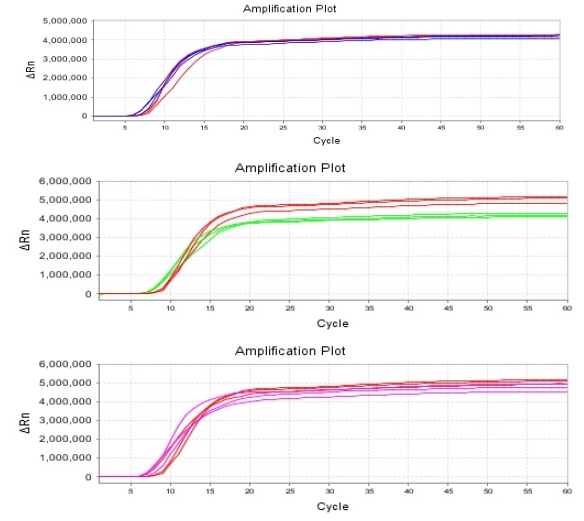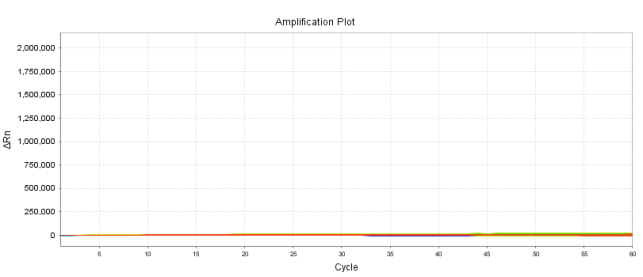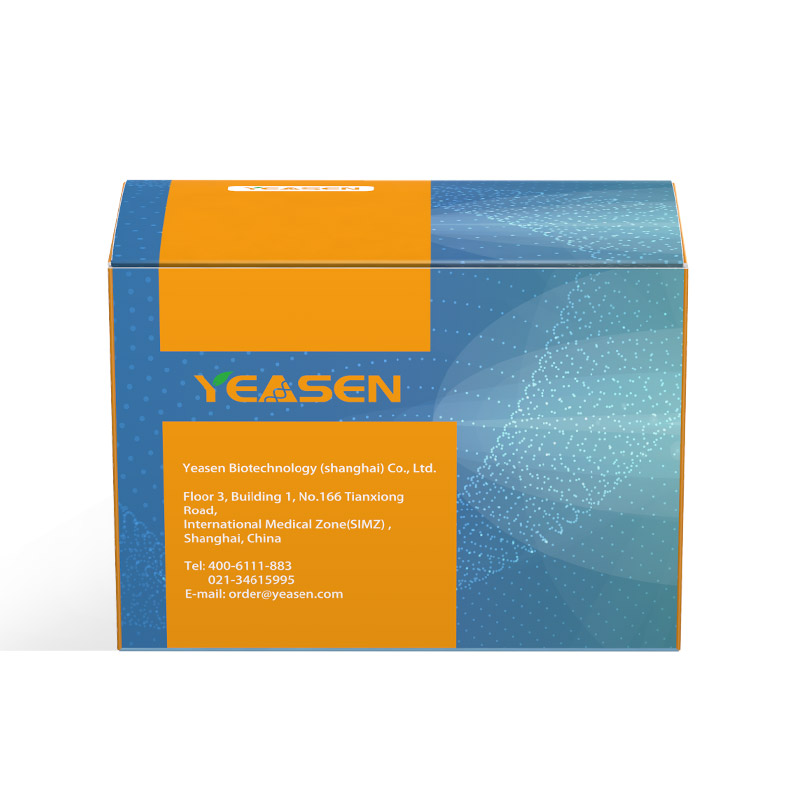Lyophilized Bst Plus DNA Polymerase (60 U/μL,Glycerol-Free)
Description
Bst Plus DNA Polymerase is derived from Bacillus stearothermophilus DNA Polymerase I. The 5 '-3' exonuclease activity was removed by genetic engineering method, but the 5 '-3' DNA polymerase activity and strong chain replacement activity were retained. Compared with wild-type Bst DNA Polymerase, the polymerase showed great improvement in amplification speed, yield, salt tolerance and thermal stability, and increased dUTP tolerance. It was very suitable for isothermal amplification reactions such as LAMP reaction. This product freeze-dried glycerin-free Bst Plus DNA Polymerase to solve the problem of glycerinase-free instability and could be used to make freeze-dried products.
Features
- High amplification efficiency
- High dUTP tolerance
- The freeze-dried product form
Applications
- Isothermal DNA amplification
Specifications
| Polymerase | Bst DNA Polymerase |
| Heat Inactivation | Incubation at 85°C for 5 min. |
| Activity Definition | 1 U refers to the amount of enzyme required to incorporate 10 nmol of dNTP into the acid-insoluble precipitate in 30 min at 65°C. |
Components
| Components No. | Name |
14405ES60 (12 KU) |
14405ES97 (120 KU) | 14402ES98 (1,200 KU) |
| 14405-A | Lyophilized Bst Plus DNA Polymerase (60 U/μL,Glycerol-Free) | 1 Vial(200 μL) | 5 Vials(400 μL) | 10 Vials(2 mL) |
| 14405-B | Lyophilized monoenzyme redissolution solution | 200 μL | 2 mL | 20 mL |
Figures
- High Sensitivity

Figure 1: Sensitivity Test
Red: 50 copies/T, response less than 15 minutes
Figure 1: The copy numbers of 50 copies/Tweres tested. The test results showed that within 15 minutes, the results of 50 copies/T performed better, and the detection rate reached 100%.
- Stability

Figure 2.Stability testing at the same temperature
Red: 37℃ 0 day Blue: 37℃ 1 day Green: 37℃ 3 days Purple: 37℃ 5 days
0 days at 37°C as a control and stability tests were carried out for 1, 3, and 5 days at the same temperature, indicating that it can still maintain a relatively stable effect at 37°C for 5 days.

Figure 3. -20℃ repeated freeze-thaw stability test
Red: Repeat freeze-thaw 0 times
Blue: Repeat freeze-thaw 5 times
Green: Repeat freeze-thaw 10 times
- Specificity

Figure 4. 48-well NTC-specific assay
48-well NTC detection was used in the specific detection of the product, and no peak was detected, indicating that the specificity was better.
Storage
The product should be stored at -25℃ ~ -15℃ for 1 years. Please avoid light.
Catalog No.:*
Name*
phone Number:*
Lot:*
Email*
Country:*
Company/Institute:*
Recommended products

